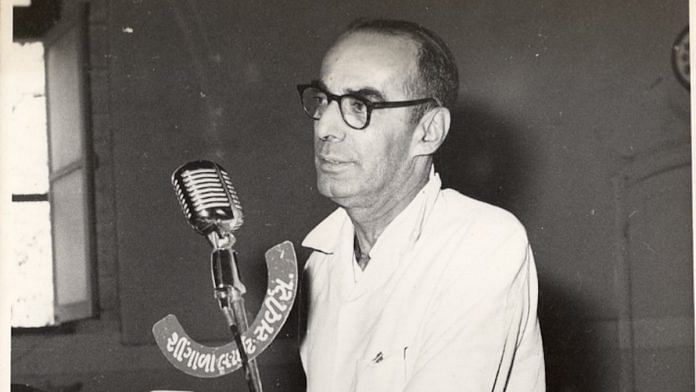I shall briefly indicate the reasons why we oppose this [Banking Companies (Acquisition and Transfer of Undertakings)] Bill. We do so on both economic and political grounds.
Insofar as the economic consequences are concerned, we think that the consequences of the measure will be disastrous to the economy. I will try to be brief.
The economic reason why we oppose this Bill is that it is bad for the economy of this country and it will ruin it further. Confidence in this country abroad will be badly shaken and the foreign capital and the help that we need will be endangered.
At home, both the depositors and the borrowers who today enjoy freedom of choice between various banks will now face one soulless monopoly. The first result of this will be that the bank deposits in this country will shrink because the common depositor, the small man, will not have faith in a government, which has so far shown that whatever is nationalised has three evils: one, that it is subject to bureaucratic red-tape and inefficiency; second, that it is subject to political influence, graft and corruption; and third, that inevitably almost all State enterprises make a loss.
Now that the banks, which are making a profit, are to be converted into losing enterprises. the depositors’ money will be at stake and I have no doubt that the number of deposits in this country will shrink. If that happens, the Prime Minister’s hope of laying her hands on Rs 200 crores of depositors’ money and powering them into the gutter of State enterprises will not be fulfilled.
I want to warn her that this is a vain hope—of grabbing the money of the depositors, because the depositors in this country will see to it that the money is no longer there for her to take.
I want to ask her, where are those tinpot dictators today? Where is Dr Nkrumah and where is Dr Sukarno? Let her beware that, if she goes on that path, she will come to the same end
These are some of the economic consequences, but we have to judge this measure, as Pravda [a Russian newspaper] has reminded us in its political totality this morning, and I would like to follow Pravda in discussing what the political considerations are which make us oppose this Bill.
At Faridabad the Prime Minister and at Bangalore the Deputy Prime Minister told the country that social control was working well and there was no need for any further measure. Therefore, one must assume that there are no economic grounds for this change. but that the motivation is purely political. We regard the motive of this Bill to be to promote further concentration of economic and political power in the hands of the Cabinet. There are reports already that the Reserve Bank, which has enjoyed an autonomy, is now going to be reduced to a subservient wing of the Ministry of Finance. There are other reports that Intelligence will be taken away from the Home Minister and transferred to the hands of the Prime Minister. These are steps, one by one, to concentrate political power in the hands of one person… (Interruptions.)
This is one step with which we are faced to take the country towards absolute rule. What has happened? The Prime Minister first tried to face this Parliament with an accomplished fact by enacting an Ordinance on Saturday evening. She tried to cheat this Parliament of the right to hold a fair and dispassionate debate. (Interruption.) When the Supreme Court moves in and defended the privileges of the House, she now tries to face the Supreme Court with a fait accompli.
Mr Deputy-Speaker, Sir, the technique of the accomplished fact is not the methods of democracy, because the democracy does not rely only on majority rule. Democracy is majority rule after full consideration and dispassionately listening to the point of view of the minority. All these processes have been vitiated and nationalisation has come like a thief. It should have come in broad daylight, but it has come in the dark, like a thief, in the night.
In the light of this, we look upon this Bill as one step towards the establishment of a dictatorship in this country. We look upon this as an example of the temper of demagogy worthy of backward African and Arab countries, by which this great democracy will be brought down to the level of the petty dictatorship.
This Bill violates Fundamental Rights. This Bill is expropriatory; it is discriminatory; and it has no public purpose.
Therefore, this Bill is ultra vires of the Constitution.
Mr. Deputy-Speaker, the government cannot go on in this manner; we shall fight every inch of ground. I would like to warn the hon. Prime Minister to desist from this path. Other people have tried, in collusion with the Communists in their countries, to establish this kind of authoritarian regime. I give two examples: there was Dr [Kwame] Nkrumah of Ghana and there was Mr Sukarno of Indonesia.
Today, it seems to me that she is trying to tread that path. (Interruption.) I want to ask her, where are those people today?
A Member: He is threatening a military coup.
M R Masani: I want to ask her, where are those tinpot dictators today? Where is Dr Nkrumah and where is Dr Sukarno? Let her beware that, if she goes on that path, she will come to the same end, because, as Shri [Atal Bihari] Vajpayee put it, the people of India are not going to tolerate it.
This is part of ThePrint’s Great Speeches series. It features speeches and debates that shaped modern India.



